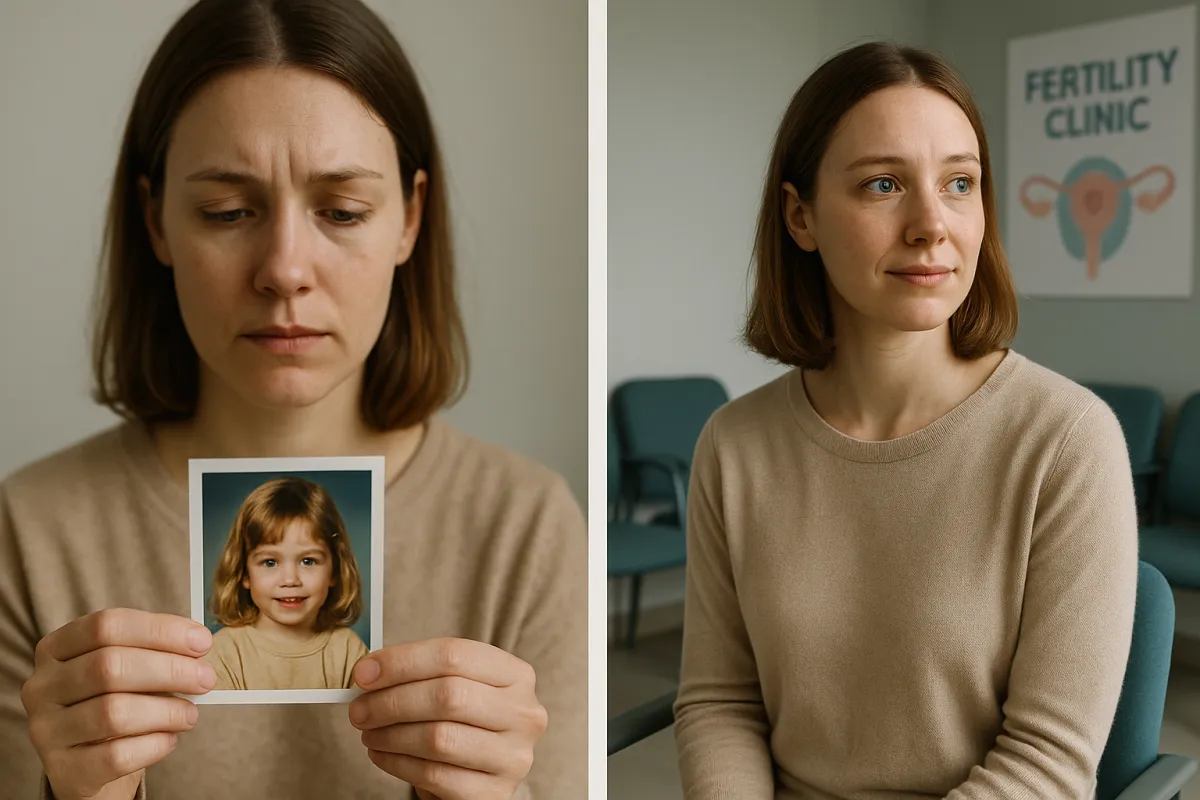
Trauma, Miscarriage, and Endometriosis: The Fertility Impacts We're Finally Talking About
By Elizabeth Bancroft | Clinical & Counselling Psychologist | Hope Affirm Thrive
Let’s be honest—infertility conversations often center around ovulation windows, sperm quality, or supplements. What rarely gets acknowledged?
The quiet, long-reaching effects of trauma.
But the science is catching up. New and compelling research is shedding light on the real connection between trauma history and fertility struggles, including endometriosis, miscarriage, and pregnancy loss. These aren't just psychological footnotes—they’re biological, measurable, and deeply relevant for anyone navigating IVF or reproductive healthcare.
So what’s the link between what happened then and what your body is experiencing now?
Let’s unpack the latest research—and why it matters.
Key Findings: Trauma’s Tangled Web with Reproductive Health
1. Adverse Childhood Experiences (ACEs) and Endometriosis
A landmark 2025 Swedish nationwide cohort study by Rostvall et al. followed over 300,000 women and found that those with three or more adverse childhood experiences had a 35% higher risk of developing endometriosis. The risk was particularly elevated for those exposed to household dysfunction and sexual abuse.
This is one of the most robust studies to date linking early emotional trauma with a later gynecological diagnosis—and it supports the idea that trauma can shape immune responses, inflammation, and hormone regulation in ways that impact reproductive organs.
Translation: Endometriosis isn’t just biological—it can be biopsychosocial.
2. Sexual Violence and Miscarriage
The trauma–miscarriage link has been highlighted across multiple population-level studies:
Barman & Deka (2024) found that women in Northeast India who experienced sexual violence were 65% more likely to suffer a miscarriage than those who hadn’t.
Silverman et al. (2011) showed that U.S. women who endured intimate partner violence during pregnancy were up to 80% more likely to miscarry.
Smith et al. (2019) revealed that women who reported childhood sexual or physical abuse had significantly higher odds of miscarriage than those without such histories.
These findings are heartbreaking—but validating for those who’ve experienced both trauma and reproductive loss. The body doesn’t forget, even when we try to move on.
Why Does Trauma Affect Fertility?
We know trauma affects the mind—but here’s how it changes the body:
1. Brain-Body Pathways
Trauma alters brain structures like the amygdala and hippocampus, triggering a hyperactive stress response. This chronic fight-or-flight state interferes with the hypothalamic-pituitary-ovarian (HPO) axis, which regulates menstruation, ovulation, and hormonal balance.
2. Inflammation and Immunity
Long-term stress and unresolved trauma increase systemic inflammation—a key driver of both endometriosis and miscarriage risk. Trauma-exposed individuals also have altered immune responses that may lead the body to react negatively to a fertilized embryo.
3. Hormonal Disruption
Chronic exposure to cortisol (the stress hormone) throws off the delicate hormonal dance required for:
Regular ovulation
Uterine lining maintenance
Embryo implantation
Early pregnancy stability
4. Epigenetic and Cellular Changes
We now know trauma can change gene expression through epigenetics—essentially flipping switches in how your body responds to stress, immunity, and reproduction. These biological changes can persist for decades and across generations.
What This Means for People Trying to Conceive
Let’s be clear:
Having a trauma history does not mean you are broken.
But it does mean your body might be operating on an outdated threat radar—and your fertility journey may require different kinds of support.
Many IVF clinics don’t screen for trauma. They track your follicles, but not your flashbacks. They count your embryos, but not your nervous system overload. And that’s a gap we need to close.
What You Can Do Now
1. Tell Your Story in Safe Spaces
If you feel safe, talk to your fertility specialist, GP, or psychologist about your trauma history. It’s a medical issue—not a personal flaw.
2. Seek Trauma-Informed Care
Therapies like EMDR, Schema Therapy, Resource Therapy, and DBT are designed to help you process and integrate trauma—not just talk about it. These approaches can help downregulate your nervous system, improve emotional resilience, and support hormonal regulation.
3. Nervous System Regulation is Fertility Care
Vagal toning exercises, grounding, breathwork, and gentle body-based practices aren’t “woo”—they’re science-based strategies that help your body shift into the parasympathetic state needed for fertility.
4. Consider Fertility Coaching That Gets It
Our IVF support programs at Hope Affirm Thrive are designed by trauma-informed clinicians who’ve lived this experience. We address the whole human—not just the ovaries.
Final Thoughts
Trauma doesn’t live in the past. It lives in the body.
And if your fertility journey has been filled with confusion, setbacks, or invisible grief—please know, it’s not your fault.
You are not weak. You are not imagining things.
You’re carrying a history that deserves compassion, curiosity, and support.
Let’s keep talking about it. Loudly, bravely, and together.
References:
Rostvall, M. et al. (2025). Adverse childhood experiences and the risk of endometriosis. Human Reproduction. https://doi.org/10.1093/humrep/deaf101
Barman, B., & Deka, P. (2024). Sexual violence and miscarriage. Journal of Public Health, 46(3), 342–350. https://doi.org/10.1093/pubmed/fdae018
Silverman, J. G. et al. (2011). Violence during pregnancy and miscarriage risk. BMC Pregnancy and Childbirth, 11(1), 49. https://doi.org/10.1186/1471-2393-11-49
Smith, M. V. et al. (2019). ACEs and pregnancy outcomes. Human Reproduction, 35(6), 1451–1458. https://doi.org/10.1093/humrep/deaa073
If this post spoke to you, share it.
If it triggered you, be gentle with yourself.
And if you’re looking for support, we’re here.
The IVF Compass – Helping you navigate the emotional terrain of fertility, with science and heart.
